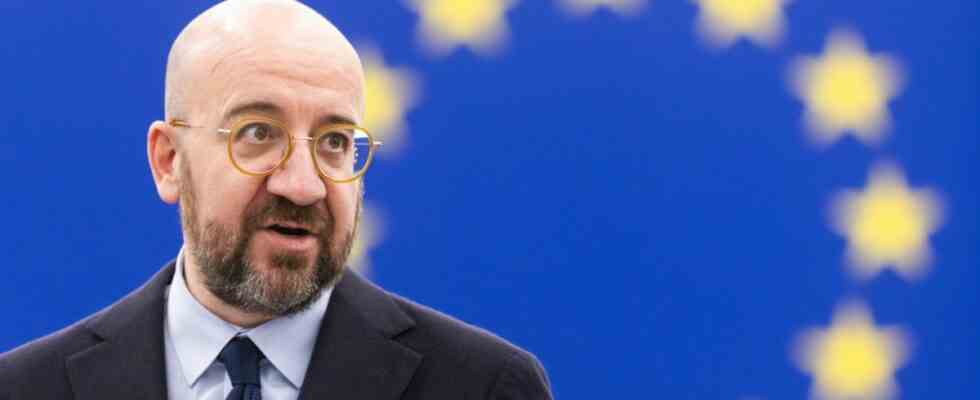He will play an important role, and he is apparently on the side of the Commission: Charles Michel, as Council President, will chair and moderate the summit meetings of the 27 EU heads of state and government. The next will take place in early February. An important topic there will be how the EU responds to the Inflation Reduction Act (IRA), a massive subsidy program by the American government. In an interview with some international media outlets, Michel, who was formerly Prime Minister of Belgium, has now spoken out in favor of relaxing the EU’s strict subsidy rules. He also wants to provide more funding from Brussels. He had something similar a week ago in a guest post on the news site political required.
Michel’s approach is in the same direction as that of Commission President Ursula von der Leyen. This is not a matter of course, because the relationship between the two is considered to be strained and marked by strong rivalry. Von der Leyen also advocates targeted and temporary easing of the state aid rules – and for more money from Brussels. The fact that the two are now pulling in the same direction makes it more difficult for opponents of the ideas among the 27 EU governments. The federal government, for example, supports the softening of the subsidy regulations, but rejects new EU funding pots that are filled with the help of further joint debts.
The cause of the quarrels, the Inflation Reduction Act, promotes the green transformation of the American economy. But the law disadvantages European companies that want to export environmentally friendly products to the United States. In a recent letter to EU governments, Commission Vice-President Margrethe Vestager, responsible for competition, complained that there was a risk that “some of our EU companies” would shift investments and plants to the United States.
The strict set of rules is intended to prevent the EU internal market from being distorted
The Commission is responsible for examining and approving subsidies from EU governments. The strict set of rules is intended to prevent the common internal market from being distorted. Vestager and von der Leyen now want to soften the regulations so that the EU countries can keep up better with the USA.
But this could lead to unfair advantages for rich and large member states like Germany, because they can feed their companies more easily than cash-strapped countries like Italy. That is why von der Leyen and Michel propose more EU funding at the same time, especially to support poorer countries. Von der Leyen has so far not said how she intends to finance it. Michel now suggests initially orienting oneself to an EU program called Sure. This has granted member states low-interest loans during the crisis. In order to fill the pot, the Commission took on debt for which the states are jointly responsible. Another program is to be added later, in which the EU funding institute EIB will provide capital for investments in green industrial projects, said Michel.

